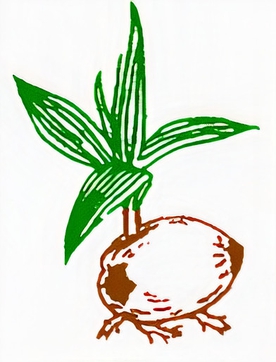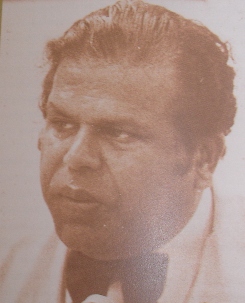
The Fiji Labour Party, also known as Fiji Labour, is a political party in Fiji. Most of its support is from the Indo-Fijian community, although it is officially multiracial and its first leader was an indigenous Fijian, Dr. Timoci Bavadra. The party has been elected to power twice, with Timoci Bavadra and Mahendra Chaudhry becoming prime minister in 1987 and 1999 respectively. On both occasions, the resulting government was rapidly overthrown by a coup.

The United Fiji Party was a political party in Fiji. It was founded in 2001 by Prime Minister Laisenia Qarase as a power base; it absorbed most of the Christian Democratic Alliance and other conservative groups, and its endorsement by the Great Council of Chiefs (Bose Levu Vakaturaga) caused it to be widely seen as the successor to the Alliance Party, the former ruling party that had dominated Fijian politics from the 1960s to the 1980s. It drew its support mainly from indigenous Fijiians.

The Alliance Party, was the ruling political party in Fiji from 1966 to 1987. Founded in the early 1960s, its leader was Kamisese Mara, the founding father of the modern Fijian nation. Widely seen as the political vehicle of the traditional Fijian chiefs, the Alliance Party also commanded considerable support among the Europeans and other ethnic minorities, who, although comprising only 3–4% of Fiji's population, were over represented in the parliament. Indo-Fijians were less supportive, but the Fijian-European block vote kept the Alliance Party in power for more than twenty years.

Siddiq Moidin Koya was a Fijian Indian politician, Statesman and Opposition leader. He succeeded to the leadership of the mostly Indo-Fijian National Federation Party (NFP) on the death of the party's founder, A. D. Patel, in October 1969, remaining in this post until 1977. He later served a second term as leader of the NFP, from 1984 to 1987.

General elections were held in Fiji between 10 and 17 July 1982. The paradoxical results were both a triumph and a setback for the Alliance Party of the Prime Minister, Kamisese Mara. The Alliance received 52% of the popular vote, only slightly down on its previous total, but won only 28 seats, eight fewer than in the previous elections of September 1977. Part of the reason for this discrepancy was that the slight surge in support for Mara's Alliance in the Indo-Fijian community, from 14 percent to 16 percent, was not sufficient to translate into seats in Fiji's communal electoral system, and did not therefore off-set losses among the ethnic Fijian community, particularly in the west of the country. The Western United Front of Osea Gavidi won only two seats, but split the vote, allowing the National Federation Party (NFP), with which it tactically allied itself, to gain seven seats for a total of 22. The NFP, which had split into two factions before the previous elections, had been reunited.

The National Federation Party is a Fijian political party founded by A.D. Patel in November 1968, as a merger of the Federation Party and the National Democratic Party. Though it claims to represent all Fiji Islanders, it is supported, in practice, almost exclusively by Indo-Fijians whose ancestors had come to Fiji between 1879 and 1916, mostly as indentured labourers. However, in the 2018 general election, the party recorded a considerable change in its support base due to the inclusion of more indigenous Fijian candidates.

Fiji's parliamentary election of March 1977 precipitated a constitutional crisis, which was the first major challenge to the country's democratic institutions since independence in 1970.

The National Alliance Party of Fiji (NAPF) was a Fijian political party. It was formally registered on 18 January 2005 by Ratu Epeli Ganilau, as the claimed successor to the defunct Alliance Party, which ruled Fiji from 1967 to 1987 under the leadership of the late Ratu Sir Kamisese Mara, Ganilau's father-in-law. Others involved with the party included university lecturer Meli Waqa as party secretary, and Manu Korovulavula as treasurer. The Deputy Leader was Hirdesh Sharma. The party was launched publicly at a mass rally in Suva on 8 April 2005.

Ambalal Dahyabhai Patel, better known as A.D. Patel, was an Indo-Fijian politician, farmers' leader and founder and leader of the National Federation Party. Patel was uncompromisingly committed to a vision of an independent Fiji, with full racial integration. He was one of the first to advocate a republic, an ideal not realized in his lifetime. He also advocated a common voters' roll and opposed the communal franchise that characterized Fijian politics.

Communal constituencies were the most durable feature of the Fijian electoral system. In communal constituencies, electors enrolled as ethnic Fijians, Indo-Fijians, Rotuman Islanders, or General electors vote for a candidate of their own respective ethnic groups, in constituencies that have been reserved by ethnicity. Other methods of choosing parliamentarians came and went, but this feature was a constant until their final abolition in the 2013 Constitution.

National constituencies were a former feature of the Fijian electoral system. They were created as a compromise between demands for universal suffrage on a common voters' roll, and for a strictly communal franchise, with Parliamentary constituencies allocated on an ethnic basis and elected only by voters enrolled as members of specific ethnic groups.

Open constituencies represent one of several electoral models employed in the past in the Fijian electoral system. They derived their name from the fact that they were "open": unlike the communal constituencies, the 25 members of the House of Representatives who represented open constituencies were elected by universal suffrage and were open to members of any ethnic group.

Western United Front (WUF) was an ethnically Fijian political party formed prior to the 1982 elections and contested the election in coalition with the National Federation Party . The party was in response to the disenfranchisement of indigenous peoples in the Western Provinces of Viti Levu as despite the presence pf major economic drivers of the country located in their areas they lack representation on the decision making table of the country.
The Federation Party was Fiji's first formal political party. The Citizens Federation, which had won three of the four seats reserved for Indo-Fijians at the 1963 elections, decided to formalize its role as a political party, which was officially founded on 21 June 1964 with A. D. Patel as President and Sidiq Koya as Vice-President. The merger took place in time for the party to participate in the 1965 constitutional conference which was called to map out a path towards independence from the United Kingdom. In 1968, the Federation Party merged with the National Democratic Party to form the National Federation Party, which is now (2021) the oldest political party in Fiji still in existence.
Davendra Singh was a Fiji Indian small businessman and politician who came into prominence when he challenged and defeated the official National Federation Party (NFP) candidate in a by-election in March 1985.

Karam Chand Ramrakha was a former Fiji Indian lawyer, union leader and politician, who served in colonial Fiji's Legislative Council and independent Fiji's House of Representatives from 1966 to 1982.
The New Democratic Party is a federal political party in Canada. Widely described as social democratic, the party occupies the centre-left to left-wing of the political spectrum, sitting to the left of the Liberal Party. The party was founded in 1961 by the Co-operative Commonwealth Federation (CCF) and the Canadian Labour Congress (CLC).

General elections were held in Fiji on 14 December 2022 to elect the 55 members of Parliament. The elections took place following the passage of controversial electoral amendments.







